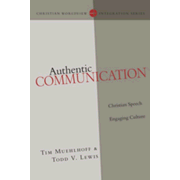
The tragic assassination of Charlie Kirk shook many of us. Reports claimed he was targeted because of “hate speech.” Whether one agreed with all his views or not, his death reminded us of how dangerous words and accusations about words have become.
I wrote a tribute to him about 2 weeks ago; you can read it here. But this moment also made me reflect deeply: Where do Christians draw the line between free speech and hate speech?
Free speech is often something we take for granted, especially in the Western world. Yet it’s one of the most important freedoms we have. It’s more than standing on a soapbox or posting online; it’s the right to express ideas, challenge norms, and engage in dialogue without fear of censorship or imprisonment.
Throughout history, free speech has fueled progress. It empowered people to question authority, pursue justice, and search for truth. However, in today’s era of social media and global platforms, the conversation has become more complex. Now, we’re constantly weighing the freedom to speak against the risk of causing harm.
As Christians, this isn’t just a political or cultural issue. It’s a biblical one. God gave us the gift of speech, and His Word reminds us that words carry incredible power. They can create or destroy, heal or wound, bless or curse. That’s why we need to carefully consider where the line falls between free speech and hate speech, and how we, as followers of Christ, should use our voices.
What Is Free Speech?

At its core, free speech is the freedom to express ideas, beliefs, and opinions without fear of government punishment or censorship. In democratic societies, it’s considered a cornerstone of liberty.
But free speech isn’t only a political concept. For Christians, it carries a deeper weight. God created us with the ability to communicate and gave us the responsibility to use our words for His glory.
Free speech allows us to:
- Share the gospel without fear (Romans 1:16).
- Stand for truth when culture or governments resist it (Acts 5:29).
- Engage in dialogue that encourages, teaches, and corrects (2 Timothy 3:16).
However, free speech is not the same as a license to say whatever we want without consequences. Words can harm, and Scripture reminds us that every careless word will be judged (Matthew 12:36). That’s why the Christian perspective on free speech must go beyond “rights” and focus on responsibility and witness.
What Counts as Hate Speech?
In today’s culture, hate speech is often defined as speech that attacks or demeans people based on race, religion, gender, or other protected categories. Laws differ from country to country, but the general idea is that hate speech is harmful and dangerous.
But here’s the challenge: who decides what is “hateful”?
For Christians, this question gets even more complicated. Much of what the Bible teaches about sin, morality, and truth is considered “offensive” by modern culture. If declaring what God’s Word says about sexuality, salvation, or sin is labeled as hate, then free speech and biblical truth are on a collision course.
Jesus Himself warned us that His message would offend (John 15:18–20). The gospel confronts sin, and sinners often don’t want to hear it. Offense alone does not equal hate. The difference lies in our motive and delivery; are we speaking truth out of love for people’s souls, or out of anger, pride, or contempt?
The Bible’s Guideline for Speech
God’s Word doesn’t leave us guessing about how we should use our words. Over and over, Scripture sets clear principles:
- Ephesians 4:29 urges us to avoid corrupt talk and instead speak what builds others up.
- James 3 compares the tongue to a spark that can set a forest ablaze, reminding us of the destructive power of careless words.
- John 1:14 describes Jesus as “full of grace and truth,” a balance we are called to follow.
Jesus Himself modeled this. With the woman at the well (John 4), He spoke truth about her sin, yet with such compassion that she was drawn to grace. He never watered down truth, but He also never weaponized His words.
Truth without grace can wound. Grace without truth can mislead. Jesus showed us we need both
When Free Speech Becomes Sinful Speech

But just because we have the right to say something doesn’t mean we should. Freedom of speech in society doesn’t override God’s commands about how we use our words.
The Bible draws clear boundaries:
- Colossians 3:8–9 calls us to put away anger, slander, and filthy talk.
- 1 Peter 2:16 warns us not to use freedom as a cover-up for evil.
- Proverbs 12:18 contrasts reckless words, which pierce like a sword, with wise speech that brings healing.
That means Christians can’t hide behind “free speech” as an excuse for gossip, cruelty, racism, or mockery. Those things aren’t courageous truth-telling; they’re sinful speech.
Where Christians Draw the Line
So how do we discern when to speak and when to hold back? Scripture gives us a way forward:
1️⃣ We speak boldly when biblical truth is at stake.
Even if culture calls it hate speech, we cannot compromise God’s Word. Peter and John declared, “We cannot but speak of what we have seen and heard” (Acts 4:20).
2️⃣ We refuse to engage in truly hateful speech.
Insults, name-calling, or words meant to demean others never honor Christ.
3️⃣ We examine our motives.
Are we speaking from love, or from pride and anger? Are we trying to build up or just tear down?
A simple filter: Does this reflect Christ’s heart? Does it point people to the truth with grace? If not, it may be better to stay silent.
Speech as Witness and Service

Free speech for the believer isn’t only about protecting our rights; it’s about using our words for God’s glory. Our speech should:
- Proclaim truth (2 Timothy 4:2).
- Encourage and build up others (1 Thessalonians 5:11).
- Defend the faith with gentleness and respect (1 Peter 3:15).
- Reflect Christ’s love even in disagreement (John 13:35).
In a polarized culture, Christians must resist the temptation to mirror the harshness, sarcasm, or cruelty often found in public discourse. We are called to a different standard: bold but compassionate, truthful but kind.
FAQ: Free Speech vs. Hate Speech for Christians
1️⃣ Is all offensive speech considered hate speech?
No. Some truths from Scripture will offend, but offense isn’t the same as hate when spoken in love.
2️⃣ Should Christians stay silent if their beliefs are labeled “hate speech”?
No. We must speak God’s truth, even when it’s unpopular. But we should do so with gentleness, humility, and respect.
3️⃣ How do Christians know if they’ve crossed the line into sinful speech?
Ask: Does this glorify Christ? Does it build up or tear down? Is it motivated by love or by anger, pride, or prejudice?
4️⃣ What if free speech laws conflict with biblical teaching?
When the laws of men contradict God’s Word, we obey God first (Acts 5:29). Christians must be willing to face opposition for truth.
5️⃣ How can Christians be both bold and compassionate in speech?
Follow Jesus’ example: He spoke hard truths but always with grace. We can stand firm without being cruel, and correct without condemning.
6️⃣ What role does listening play in free speech for Christians?
Listening is just as important as speaking. James 1:19 reminds us to be “quick to hear, slow to speak, slow to anger.” Listening helps us understand others, show respect, and open doors for them to hear the truth later.
Conclusion: Speaking the Truth in Love
The debate over free speech and hate speech is not going away. For Christians, the question is not simply “What can I say?” but “How can I honor Christ with my words?”
Our calling is clear: to use our voices to proclaim truth, encourage others, and reflect Christ. The world may accuse, label, or even persecute us, but our standard comes from God, not shifting cultural definitions.
Let’s remember that every word we speak is an opportunity to bear witness. May we be bold without being harsh, compassionate without compromising, and faithful to speak God’s truth in love.
Key Takeaway
Free speech is a gift, but for Christians, it’s also a stewardship. Our words have power, so let’s use them to glorify Christ, build others up, and shine as lights in a world of confusion.
Your Turn
How do you think Christians can balance boldness and compassion in today’s culture of speech? Share your thoughts in the comments. I’d love to hear from you.
As an Amazon Associate, I earn from qualifying purchases. This means that if you click on an affiliate link and make a purchase, I may receive a small commission at no extra cost to you. I only recommend products or services I trust and personally use. Thank you for supporting Biblical Christianity!
Recommended Resource
If you want to go deeper into how Christians can use words to reflect Christ in today’s culture, Authentic Communication: Christian Speech Engaging Culture by Tim Muehlhoff and Todd V. Lewis is an excellent guide.
It offers biblical wisdom and practical tools to help you speak truth with grace, resolve conflict, and engage others in meaningful dialogue.

|
Authentic Communication: Christian Speech Engaging Culture – eBook
By Tim Muehlhoff & Todd V. Lewis This book equips Christians to use words wisely in a culture of conflict. With biblical insight and practical guidance on perspective-taking, persuasion, and conflict resolution, it helps us speak truth with grace and engage our world for the good.
|

This is a thoughtful and much-needed perspective on a complex issue.
I deeply appreciate the clear distinction made between defending a truth and delivering it with contempt. The call for Christians to champion free speech while also taking responsibility for the love in which we speak is a challenging but crucial balance.
Thank you for providing a framework that prioritizes both truth and grace.
Thank you so much, Cian, for this incredibly thoughtful comment! I’m so glad the article provided clarity on such a complex issue.
You perfectly summarized the central challenge: maintaining the crucial balance between championing free speech and taking responsibility for the love and grace in which we deliver truth.
It’s certainly not easy, but prioritizing both truth and grace is the only way to engage effectively and faithfully. Your appreciation means a lot!
This is such a thoughtful piece, Alice.
I appreciate how you grounded the discussion in Scripture while addressing the real tension believers face in today’s world. As a writer and communicator, I’ve seen how easily “truth-telling” can drift into pride or defensiveness when love isn’t leading the way. Your reminder that free speech is both a gift and a stewardship really struck me.
In my experience, the key lies in the posture of the heart. It’s about speaking truth firmly, but always with gentleness. The louder the world gets, the more power there is in a calm, Christlike voice.
What you’ve shared here is a needed encouragement for those of us trying to walk that line daily.
I wonder how to tell the same Gospel message to younger people who no longer believe in my beliefs. Any idea how I might do this in their perspective?
Hi John,
Thank you so much for your kind and thoughtful words. I truly appreciate your insight as a fellow communicator. It’s so true that truth without love can easily turn into pride or defensiveness.
I love how you phrased it: “The louder the world gets, the more power there is in a calm, Christlike voice.” That’s such a powerful reminder for all of us.
Your question about sharing the Gospel with younger people who no longer share our beliefs is such an important one. I believe the key, as you said, begins with the posture of the heart; approaching conversations not to win debates but to understand, listen, and build trust.
Many young people today value authenticity above authority, so when they see Christ’s love lived out in our patience, humility, and consistency, hearts often open where arguments might fail.
As Paul said, we should let our speech “always be gracious, seasoned with salt” (Colossians 4:6), praying that God would give us the right words at the right time. The Gospel doesn’t lose its power; it just needs to be shown through lives that make people curious about the hope within us (1 Peter 3:15).
Thank you again for your encouraging words and for your heart to reach others with truth and grace. May God continue to use your voice to speak light into a noisy world.